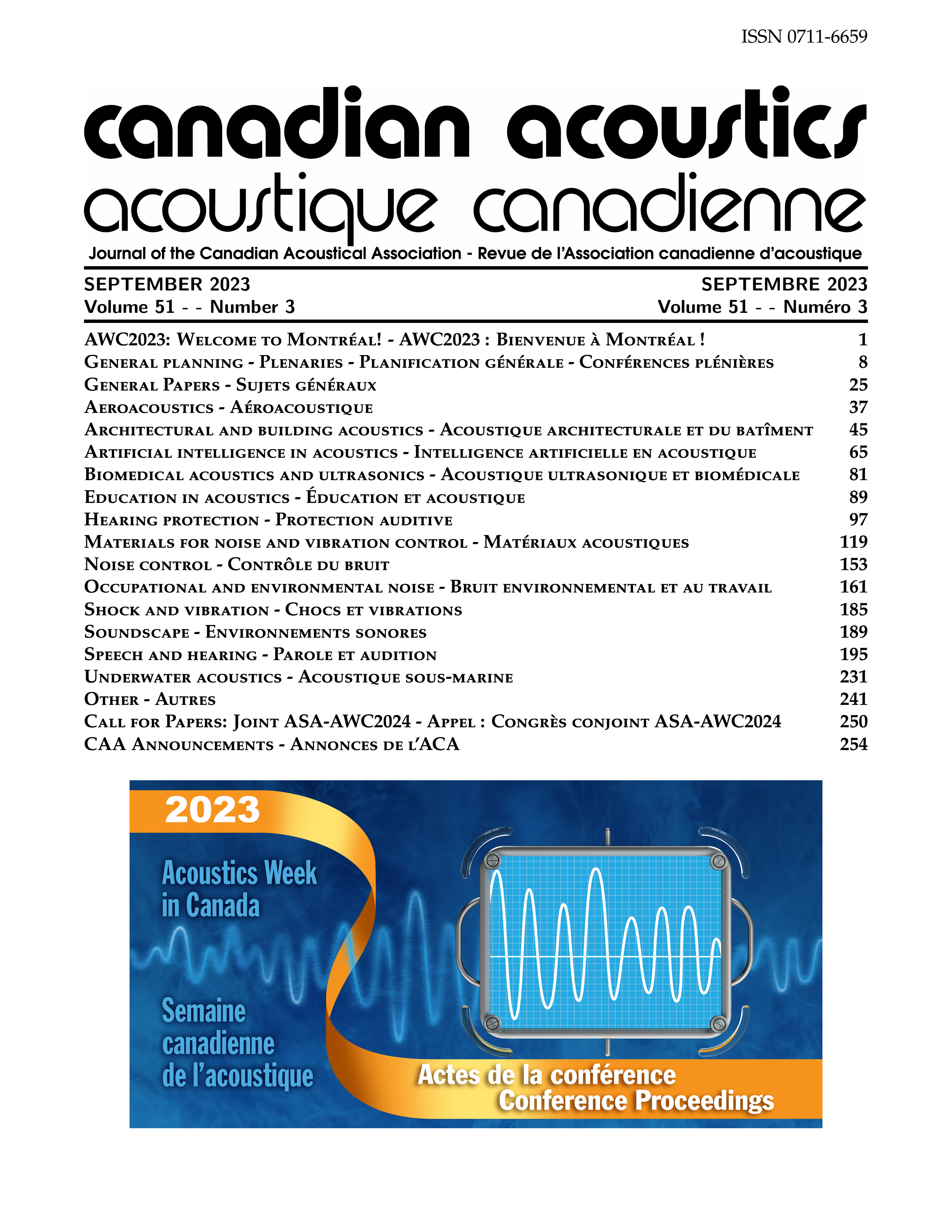Hearing Health in Remote Quebec: A Case Study from a Native School
Abstract
The role of hearing as an essential sense in children's cognitive, communicative, and learning development is highly significant. The period of early childhood, marked by critical developmental milestones, underscores the crucial impact of sound hearing on language acquisition and socio-emotional growth. The detrimental effect of untreated hearing loss on a child's learning potential necessitates early detection and prompt intervention to address auditory impairments. Globally, many regions have recognized this need and established proactive strategies like hearing awareness and hearing screening programs. In Quebec, the Programme de Dépistage Auditif Néonatal is a noteworthy initiative aimed at identifying newborn hearing impairments early. However, despite this initial screening, children remain vulnerable to subsequent auditory issues such as otitis media and earwax obstruction during their formative years. We present here a case study from a partnership with a Native community with limited access to hearing-health-related services. Over the course of our visit, we screened a total of 29 students from the local school and found that six had full earwax occlusion, seven had partial occlusion, and eight warranted a full audiological evaluation. Additionally, we provided hearing health educative presentations with a focus on preventing the effects of noise, to five classes, ranging from pre-kindergarten to grade 8. The findings from this intervention underscored the need for sustained hearing screening and education programs for school-aged children, especially for regions with limited access to such services. These strategies would ensure early detection, prevention and management of hearing issues, thereby facilitating uninterrupted learning.Additional Files
Published
How to Cite
Issue
Section
License
Author Licensing Addendum
This Licensing Addendum ("Addendum") is entered into between the undersigned Author(s) and Canadian Acoustics journal published by the Canadian Acoustical Association (hereinafter referred to as the "Publisher"). The Author(s) and the Publisher agree as follows:
-
Retained Rights: The Author(s) retain(s) the following rights:
- The right to reproduce, distribute, and publicly display the Work on the Author's personal website or the website of the Author's institution.
- The right to use the Work in the Author's teaching activities and presentations.
- The right to include the Work in a compilation for the Author's personal use, not for sale.
-
Grant of License: The Author(s) grant(s) to the Publisher a worldwide exclusive license to publish, reproduce, distribute, and display the Work in Canadian Acoustics and any other formats and media deemed appropriate by the Publisher.
-
Attribution: The Publisher agrees to include proper attribution to the Author(s) in all publications and reproductions of the Work.
-
No Conflict: This Addendum is intended to be in harmony with, and not in conflict with, the terms and conditions of the original agreement entered into between the Author(s) and the Publisher.
-
Copyright Clause: Copyright on articles is held by the Author(s). The corresponding Author has the right to grant on behalf of all Authors and does grant on behalf of all Authors, a worldwide exclusive license to the Publisher and its licensees in perpetuity, in all forms, formats, and media (whether known now or created in the future), including but not limited to the rights to publish, reproduce, distribute, display, store, translate, create adaptations, reprints, include within collections, and create summaries, extracts, and/or abstracts of the Contribution.


